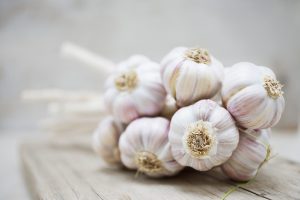What is Echinacea & What Are The Health Benefits?
Published June 5, 2017
Echinacea is a popular herbal remedy derived from the asteracea (daisy) family. It originated in North America where it was traditionally used to help manage illness. Today, echinacea is well recognised for its immune supporting properties and is often used to assist in the management of upper respiratory tract infections.
Evidence suggests Echinacea:
- Helps maintain healthy immune function by increasing the number of white blood cells, which are involved in defending the body against foreign microorganisms. It’s been found to activate types of white blood cells known as phagocytes whose role it is to engulf and digest invading microbes and other foreign bodies.
- May support the immune system during a cold infection.
- Helps shorten the duration of upper respiratory tract infections such as a cold or flu when taken at the first sign of symptoms.
- May reduce the severity and duration of a cold or flu.
- May help to reduce the severity of cold symptoms in adults including a runny nose, tiredness, headache, sore throat and a stuffy nose when taken at the onset of a cold.
- Helps to reduce subsequent upper respiratory tract infections such as colds or flu in children.
- May reduce the risk of catching a cold or flu.
- Has antioxidant properties.
The Different Forms of Echinacea
The 3 different species of Echinacea commonly used are Echinacea Pallida, Echinacea Angustifolia and Echinacea Purpurea. Most Echinacea preparations will have either one of these forms and are available in liquid extracts, tablets or capsules. Echinacea can be found in formulas on its own or in combination with other immune supporting herbs and nutrients. Generally, it is recommended that Echinacea is taken with food.
So what is the best form of Echinacea? This continues to be a topic of discussion for many but the most studied form is the Echinacea Purpurea for upper respiratory tract infections. Better results are achieved when taken at the first sign of a cold but some people take Echinacea every day during the winter months to help support their immune system. Because the strength of different Echinacea products vary, it is best to follow the dose recommendations on the label or seek the advice of a healthcare professional.
When should I take an echinacea supplement?
An echinacea supplement can be taken daily, especially during the winter season, to help support the immune system and reduce the risk of catching a cold or flu. It may be especially beneficial at the first signs of a cold or flu to help reduce the severity and duration of symptoms. Some people may have an achy, feverish feeling when they are coming down with an upper respiratory tract infection and others may experience a sore throat or runny nose.
Echinacea is available on its own or in combination with other natural immune remedies including garlic, zinc and vitamin C for additional support.
Learn about which Cenovis product may be appropriate for you.
SEE THE PRODUCTS HERE










